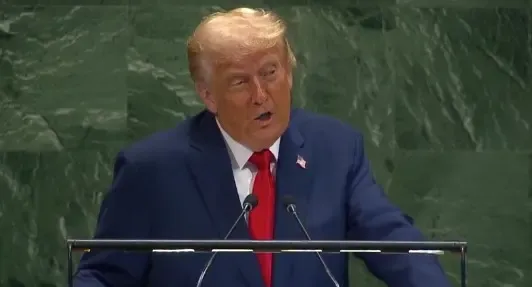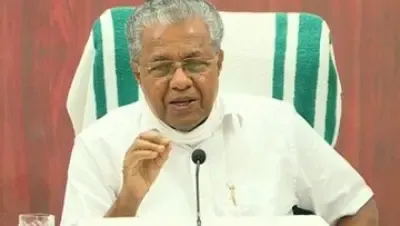Is Trump Expressing Displeasure Towards Allies While Continuing NATO?

Synopsis
Key Takeaways
- Trump's discontent with European policies is evident.
- NATO funding has not been significantly reduced.
- Defense spending targets have been raised to 5 percent by 2035.
- US-European relations remain complex and multifaceted.
- Historical ties continue to influence current geopolitics.
New Delhi, Sep 24 (NationPress) The Atlantic Ocean's shores seem to be witnessing a diplomatic transition, potentially widening the gap between the United States and its European counterparts.
During his speech at the 80th United Nations General Assembly on September 23, US President Donald J. Trump criticized Europe, stating, “Your countries are going to hell,” reflecting his discontent with the actions of European leaders.
He emphasized that NATO nations’ failure to reduce their reliance on Russian energy amounts to “funding the war against themselves.”
His frustration has been exacerbated by France and the UK recognizing Palestine, Germany and other nations assisting refugees, and various states adopting green energy initiatives.
Despite earlier speculations, Trump chose not to make significant cuts to NATO funding.
At the June 2025 NATO summit in The Hague, Washington succeeded in encouraging nearly all European allies to raise their defense spending targets from the longstanding 2 percent of GDP to 5 percent by 2035.
This decision was later celebrated as a “diplomatic masterstroke” and a “historic moment.”
Relations across the Atlantic have fluctuated, sometimes turbulent, yet occasionally serene.
Although the Italian explorer, Christopher Columbus, discovered the Americas in 1492, it was Britain that established colonies over a century later after France’s early attempts.
On July 4, 1776, the 13 American colonies declared their independence from Great Britain.
The Atlantic has remained a silent observer through countless historical transformations.
American military support played a crucial role in liberating much of Europe from Nazi domination during the 20th century.
The Cold War saw the formation of NATO, which is still operational today, providing assistance to non-member Ukraine in its conflict with Russia.
However, Trump’s implementation of “reciprocal tariffs” has not sat well with NATO allies, who perceive the US as having a complex relationship with Russia.
Trump correctly pointed out the irony of these countries relying on energy from Moscow while supplying arms to Ukraine against Russian forces.
Recently, Trump received a warm welcome in Britain, but expressed his views about the UK during the UNGA just days later.
The current climate is unpredictable and chaotic. The Atlantic is experiencing turbulent weather but has withstood similar trials in the past.









